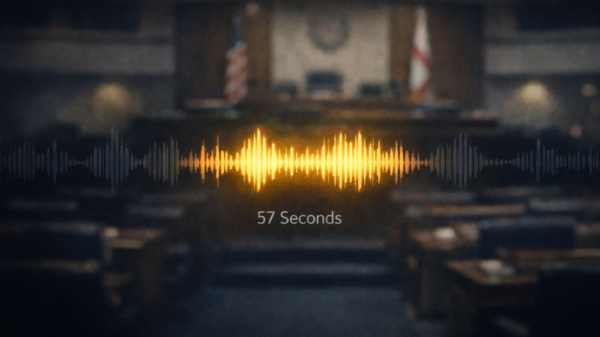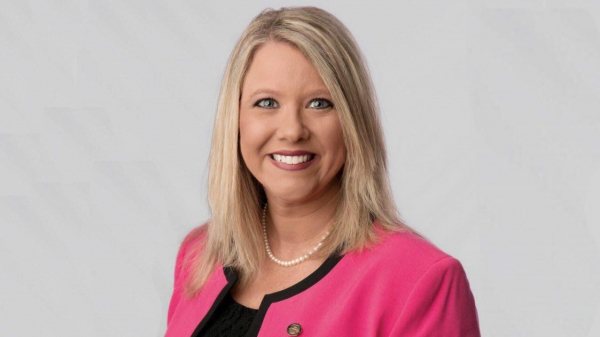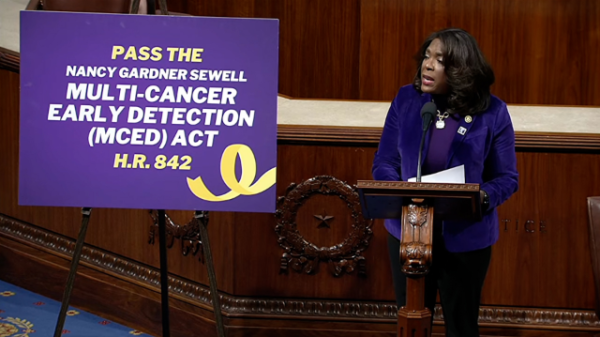Even though I have a degree in biology, I knew little about cancer—until life gave me a crash course.
In 2019, while working on my master’s degree in Huntsville, I developed severe leg pain. At first, doctors thought it was sciatica. But further tests revealed something far more frightening: a tumor the size of a cantaloupe on my pelvic bone.
That diagnosis launched me into a four-year journey through surgeries, radiation, complications, and countless lessons about cancer and the healthcare system. Out of that experience, I founded the nonprofit No Bone Left Behind to raise awareness about bone cancer and provide tangible support to other patients.
My personal cancer journey taught me so much about the incredible challenges that patients face and gave me a new appreciation for the need to innovate—and to ensure that patients can access the latest technologies and treatments.
One promising example are new blood tests that can detect multiple types of cancer, even in the earliest stages, from a simple blood draw. These tests could save countless lives. That’s why I’m encouraged Congress is working to make them available to Medicare patients, who face the highest cancer risk.
I’m especially proud that a member of Alabama’s congressional delegation is leading the charge. In 2020, Rep. Terri Sewell introduced the bill to allow Medicare coverage for multi-cancer early detection tests once they are approved by the Food and Drug Administration. Her commitment deepened in 2021 after her mother, Nancy Gardner Sewell, died shortly after being diagnosed with late-stage pancreatic cancer.
Today, the legislation, the Nancy Gardner Sewell Medicare Multi-Cancer Early Detection Screening Coverage Act, renamed by Rep. Sewell’s legislative partners, is the most bipartisan health care bill in Congress.
The House version (HR832) has more than 280 co-sponsors, including four from Alabama: Republicans Robert Aderholt and Mike Rogers, and Democrats Terri Sewell and my own representative, Shomari Figures. The companion Senate bill (S. 339) has more than 55 co-sponsors, though none yet from Alabama. With over half of Congress already on board, lawmakers should act quickly to give seniors access to these groundbreaking tests.
We know early detection means everything. I was fortunate to be diagnosed at stage 2, when my treatment options and prognosis were better. Many others are not so lucky. For most cancers, including bone cancer, there are no routine screening tests. Too often, cancers are discovered only after they’ve grown large enough to cause symptoms, and by then it can be too late.
A multi-cancer early detection test would be a game-changer. Cancer survivors often face elevated risks of additional cancers, such as breast cancer survivors facing higher odds of ovarian cancer, or bone cancer survivors like me facing greater risk of stomach, liver and pancreatic cancers. Many of these cancers have no screening tests and vague symptoms that are easy to dismiss.
But this technology isn’t just for high-risk patients. Cancer doesn’t discriminate. It can strike anyone, at any time. Someone in your circle could have cancer right now and not know it—no symptoms, no warning. Early detection could mean the difference between life and death. Alabama’s own Congressional delegation is leading the way, and the time is now for Congress to act.
On Thursday, Aug. 28, No Bone Left Behind will host a conversation 9:30 a.m. at the Innovation Portal in Mobile, 358 Saint Louis St., sharing patient stories and exploring the challenges that affect our care. For more information, please email [email protected].



















































